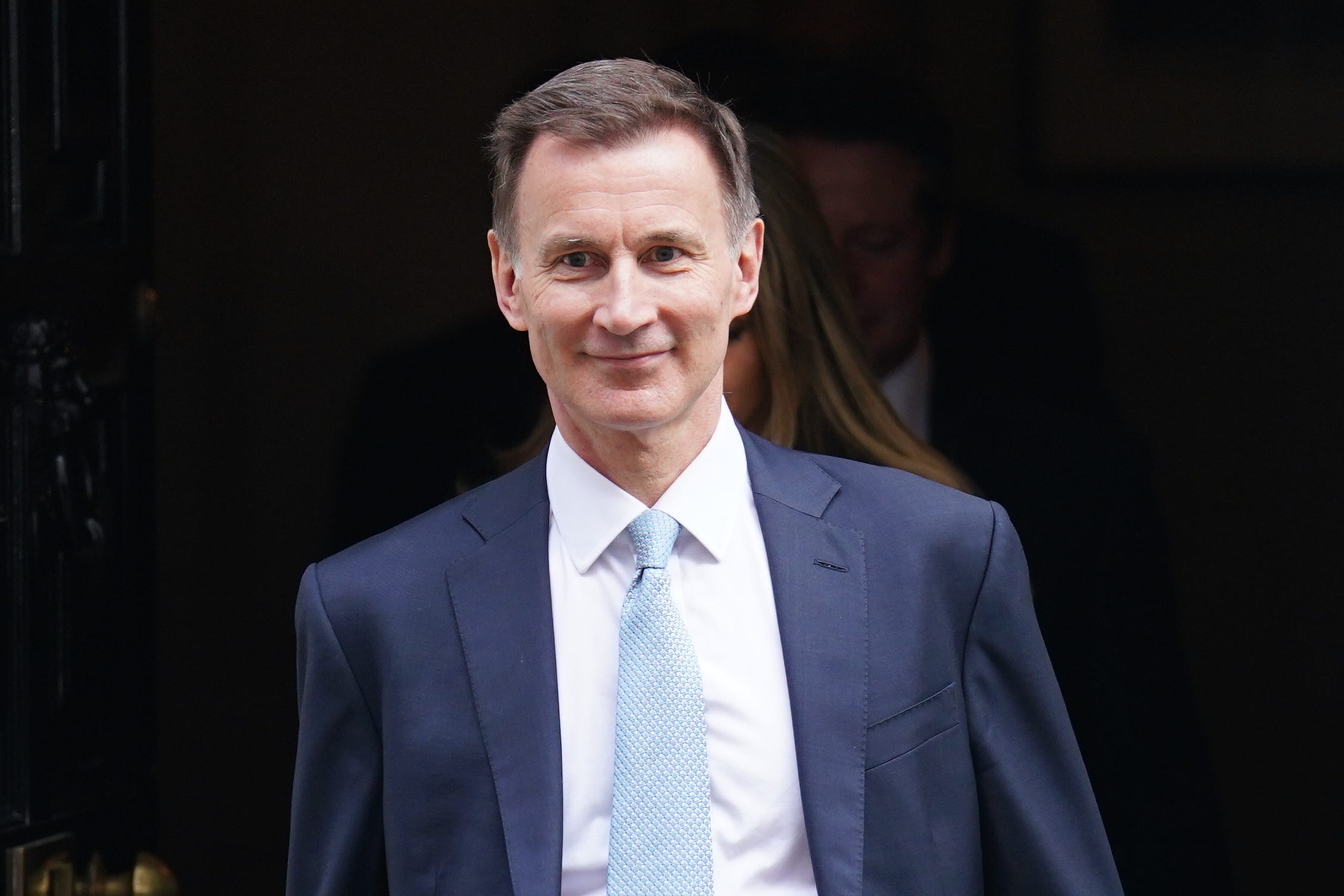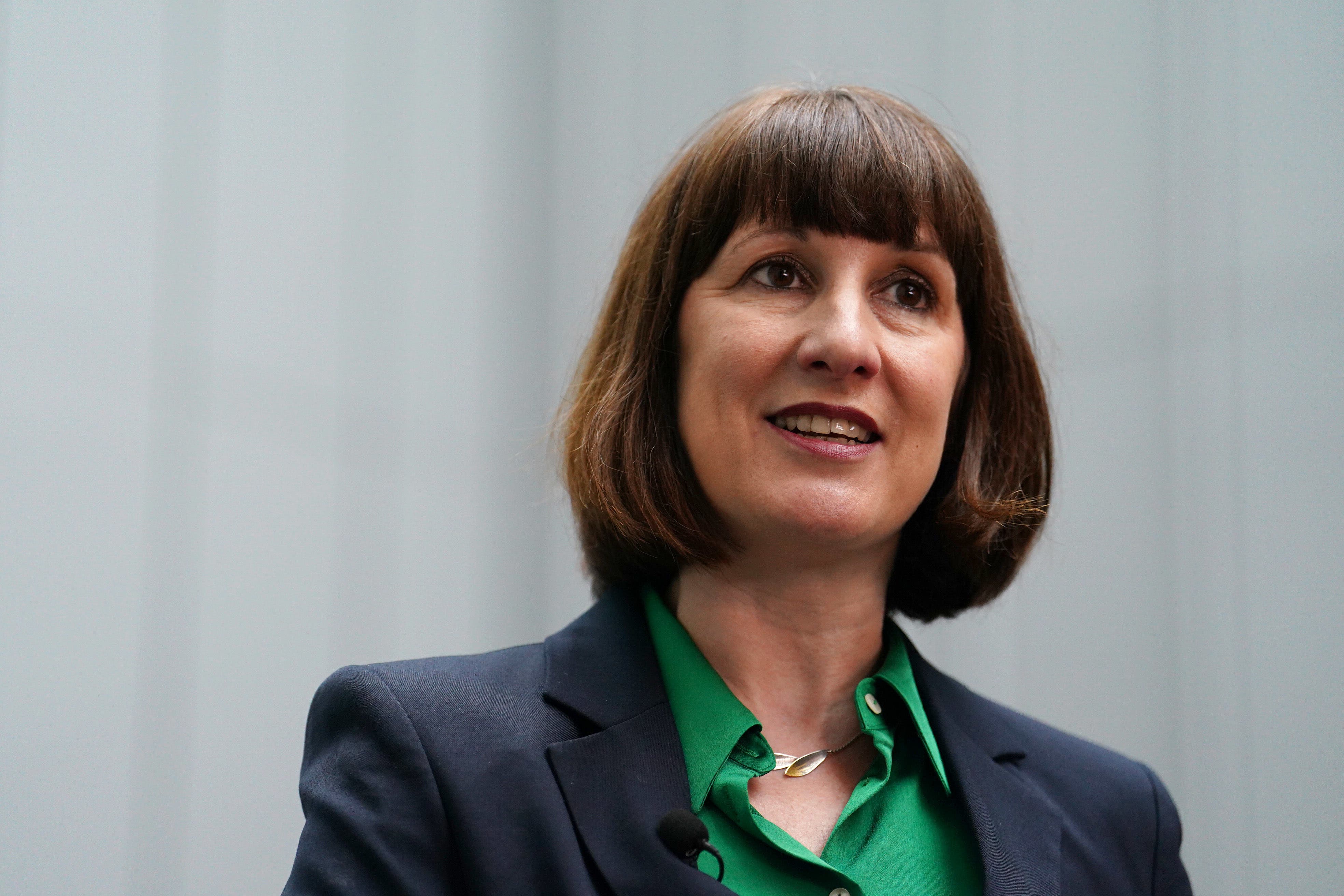UK no longer in recession after economy grows 0.6% in last quarter
Chancellor Jeremy Hunt said it was ‘proof that the economy is returning to full health’
The UK economy is officially out of recession after it grew by 0.6 per cent in the first three months of the year, according to the Office for National Statistics.
It rebounded with faster-than-expected growth after a consensus of economists had previously predicted a 0.4 per cent improvement.
The latest figures come after two quarters of decline – which represents a technical recession – in the back half of 2023.
Responding to the GDP figures, chancellor Jeremy Hunt said: “There is no doubt it has been a difficult few years, but today’s growth figures are proof that the economy is returning to full health for the first time since the pandemic.

“We’re growing this year and have the best outlook among European G7 countries over the next six years, with wages growing faster than inflation, energy prices falling and tax cuts worth £900 to the average worker hitting bank accounts.”
The performance was particularly driven by improvements in the services and production sectors, which grew by 0.7 per cent and 0.8 per cent respectively.
On Friday, the ONS confirmed the quarterly performance after 0.4 per cent economic growth in March, again boosted by the UK’s service industry.
There was notable growth for the human health and social services sector, administrative and support services, as well as for wholesale and retail firms.

Construction output, however, fell during the month, but its 0.4 per cent drop represented a significant reduction in decline after a 2 per cent fall in February.
ONS director of economic statistics Liz McKeown said: “After two quarters of contraction, the UK economy returned to positive growth in the first three months of this year.
“There was broad-based strength across the service industries with retail, public transport and haulage, and health all performing well.
“Car manufacturers also had a good quarter. These were only a little offset by another weak quarter for construction.”
Despite the positive GDP figures, the Organisation for Economic Co-operation and Development (OECD) warned in a report released at the start of the month that the UK would be the worst-performing economy in the G7 next year.
Labour’s shadow chancellor Rachel Reeves said: “This is no time for Conservative ministers to be doing a victory lap and telling the British people that they have never had it so good.
“The economy is still £300 smaller per person than when Rishi Sunak became prime minister.”
Ruth Gregory, deputy chief UK economist at Capital Economics, said the latest data confirms the recession has ended and “lends support to our view that the recovery will be stronger than most forecasters anticipate”.
She added: “Even so, at this stage we doubt the recovery will be strong enough to prevent inflation from falling further and the Bank from cutting rates to 3.00 per cent next year.”
Ben Jones, lead economist at the CBI (Confederation of British Industry), said the data suggests the UK is “now on the road to recovery”.
He added: “With falling inflation boosting households’ spending power, as well as opening the way for a reduction in interest rates in the months ahead, the economy should be able to sustain some momentum through the year.
“But a consumer-led recovery could prove short-lived without more determined action to tackle the longstanding problem of weak productivity growth, which ultimately sets the UK’s economic speed limit.”
However, James Smith, research director at the Resolution Foundation, said the wider backdrop of the UK economy is “still worrying”.
He added: “The UK swiftly exited its latest recession in 2024 with the strongest economic growth since late 2021.
“But the wider backdrop is still worrying. Britain is falling into recession twice as frequently as it did in the second half of the 20th century, and it remains a stagnation nation.
“These all-too-regular shocks and slumps in between are reducing living standards and straining the public finances.
“The battle of ideas on how to change this record should be key during the election campaign.”
And Dr George Dibb, head of IPPR’s Centre for Economic Justice, said that despite the GDP growth, there were still “flashing warning lights” on the dashboard of the UK economy.
He said: “Today’s stats are broadly good news, with positive GDP growth above expectations. But we’ll need to repeat the trick and get many quarters of growth like this for this to feel like a sustained recovery for many people.
“The data shows salaries growing but real wages are coming up on a two-decade squeeze, while higher prices for housing and on the weekly shop remain a concern for many households, and we still had the second lowest growth in the G7 in 2023. It’s too early to say that the British economy has turned a corner.”
Join our commenting forum
Join thought-provoking conversations, follow other Independent readers and see their replies
Comments
Bookmark popover
Removed from bookmarks